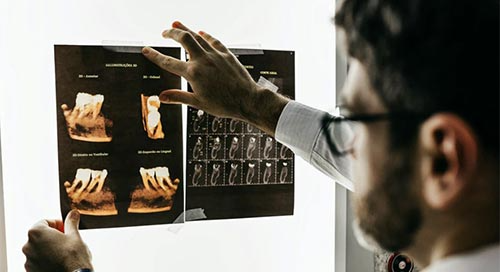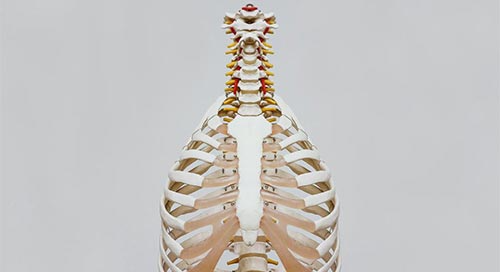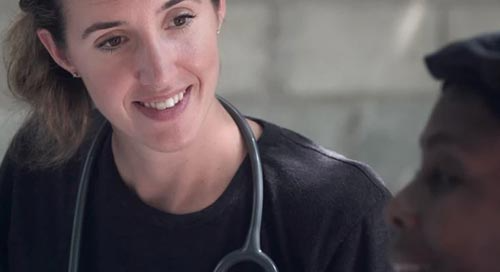interview-triage-is-a-clinician-s-and-editor-s-best-friend
July 22, 2022
 Dr. Charles Young is an experienced medical editor, publisher, and writer. He is a founding editor-in-chief of the journals Clinical Case Reports and Health Science Reports and is a practicing emergency room physician at St. Thomas Hospital in London.
Dr. Charles Young is an experienced medical editor, publisher, and writer. He is a founding editor-in-chief of the journals Clinical Case Reports and Health Science Reports and is a practicing emergency room physician at St. Thomas Hospital in London.
Our team recently sat down with Dr. Young to hear about his views on the future of healthcare and the value of a role in scholarly communications. Read the rest of our interview.
Q: You have worked as part of journal editorial teams for a long time. How has your role as journal editor influenced your work as a clinician, and vice versa?
Actually, being an emergency physician is a lot like being a journal editor. It’s about triage. When someone comes into the emergency department, you have to make an assessment of them. You usually do that using a set format. Based on that assessment, you make a decision what happens to that person next. Often there’s a clear process to follow and you try to make sure the patient follows that process. You keep a close eye on it, and you’re actually quite personally involved with that patient.
The same is true as a journal editor: an article is submitted, and you make a triage of it. You decide what should happen: is it rejected or accepted? Is it sent for peer review immediately or does it go back to the authors first? Then the article goes through whichever process is appropriate, and you form a personal relationship with that article to ensure it gets to the right endpoint.
Q: Are there different skills or knowledge that you use in these roles?
I’ve always enjoyed—and hope I’m quite good at – triage, and so I use very similar skillsets in both occupations. Like all of us, I continue to learn as I work —sometimes I learn things from clinical medicine that I’ll transfer to my editing role, and often I learn things from reading research or from the process of editing that I’ll transfer into my clinical role. So they’re definitely synergistic roles and they reinforce each other in many ways.
Q: How do you balance your time between your role as a clinician and as a journal editor?
I had a conversation recently with my colleague, who is a health and safety expert, and we were saying that our experience and qualifications are the foundations for our jobs properly, but the additional key skills we need to be successful are prioritization and time management. I wouldn’t be any good at what I do if I couldn’t prioritize activities and manage my time well. As you become more senior in your career you acquire knowledge, but that knowledge is almost the table stakes. The question then is, can you use that knowledge effectively to do what you want to do? And the effectiveness is often about time management and priorities.
And I’d be wrong not to say it’s important to have good work-life balance. I wouldn’t be good at either of my professional roles if I didn’t stop at some point during the day and say, that’s it, it’s time to take my dog for a walk or play with my children or go for a run. The wrapper around being a doctor or editor and doing prioritization and time management is having an appropriate work-life balance.
Q: Would you recommend younger professionals in your field get involved with medical publishing?
Yes! A lot of people often ask me that question and I consistently say it’s a great area to get involved in. Many people don’t do that much research as part of their clinical training unless they’ve got a specific research interest. If you haven’t had a lot of experience in research, getting involved in publishing and editing is a way to get more familiar with the whole research field without actually having to be a researcher.
I started off my interest in editing by taking a lecturer’s job, which was 50% working as an emergency physician and 50% doing research – I realized quickly that I was really bad at doing the research! But I was really interested in understanding the results of research and how those results fitted in to the broader understanding of that area, and how to shape and present those results. So if, like me, you’re not a natural researcher, being involved in medical publishing, medical editing, or peer reviewing is a really good way to become familiar with research, how to appraise it, and how to use it effectively.
Q: Are there specific benefits to being involved in medical publishing as a clinician?
Being involved in editing and publishing allows you to demystify the whole area, to feel more confident and then to use those skills in a range of ways. I’m really passionate about editing - it has brings many advantages. It’s also the kind of activity which you can do a little of – you don’t need to be a full-time editor: most of my editorial teams for journals are people who have very busy clinical jobs but are able to find a little bit of time to do some editing as well. And that combination works really well!
Want to stay up to date on medical research? Explore our portfolio on Wiley Online Library or follow us on Twitter at @WileyHealth.
Is your organization interested in subscribing to Wiley titles? Learn more about our purchase models and access options for healthcare organizations.



